2017-2018 Mentorship Participants
Karen Elizabeth Calles: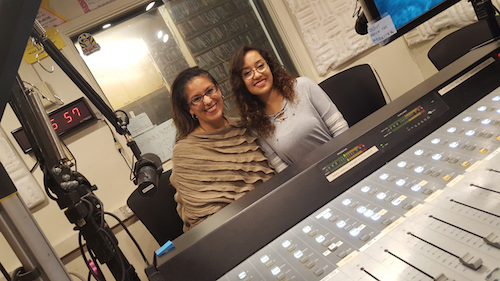
Karen Elizabeth Calles is a 4th year undergraduate student studying to earn a Bachelor's in Psychology. Her research interests are on child development, variations in cultural practices, educational support programs for underrepresented communities, and the effects of technology on human cognitive development. She is the oldest of three, born from Salvadoran parents, and the first in her family to attend college. Her hobbies are hiking, swimming, skating, snowboarding, reading, listening to different genres of music, all while spending time with her younger siblings.
Dr. Sylvanna Falcón:
Dr.Sylvanna Falcon is an associate professor of Latin American and Latino Studies. Her research and teaching interests are in human rights activism, transnational feminism, racism and antiracism, and transitional justice in Peru. She is the author of an award-winning book Power Interrupted: Antiracist and Feminist Activism inside the United Nations (University of Washington Press, 2016), which received the Gloria E. Anzaldúa book prize from the National Women’s Studies Association in 2016. She is also the producer and host of a news and public affairs program on KZSC (88.1 FM) called Voces Críticas/Critical Voices.
Project Summary:
Voces Críticas/Critical Voices is a weekly news and public affairs radio program that began in January 2017 on KZSC 88.1FM, UCSC's college radio station. The purpose of the radio show is to engage in informed discussions with public intellectuals, scholars, artists, activists, and other community members to discuss the news (local, national, and international) and social issues facing and of concern to communities of color. Karen Calles will be the production assistant to the show. She will be trained on using an editing software program to prepare pre-recorded interviews for airing and to convert them into podcasts for online distribution. Karen will be learning media production skills in this capacity and supporting the show by identifying prospective interviewees, collaborating on conducting interviews, and learning about broadcast radio.
---------------------------------------------
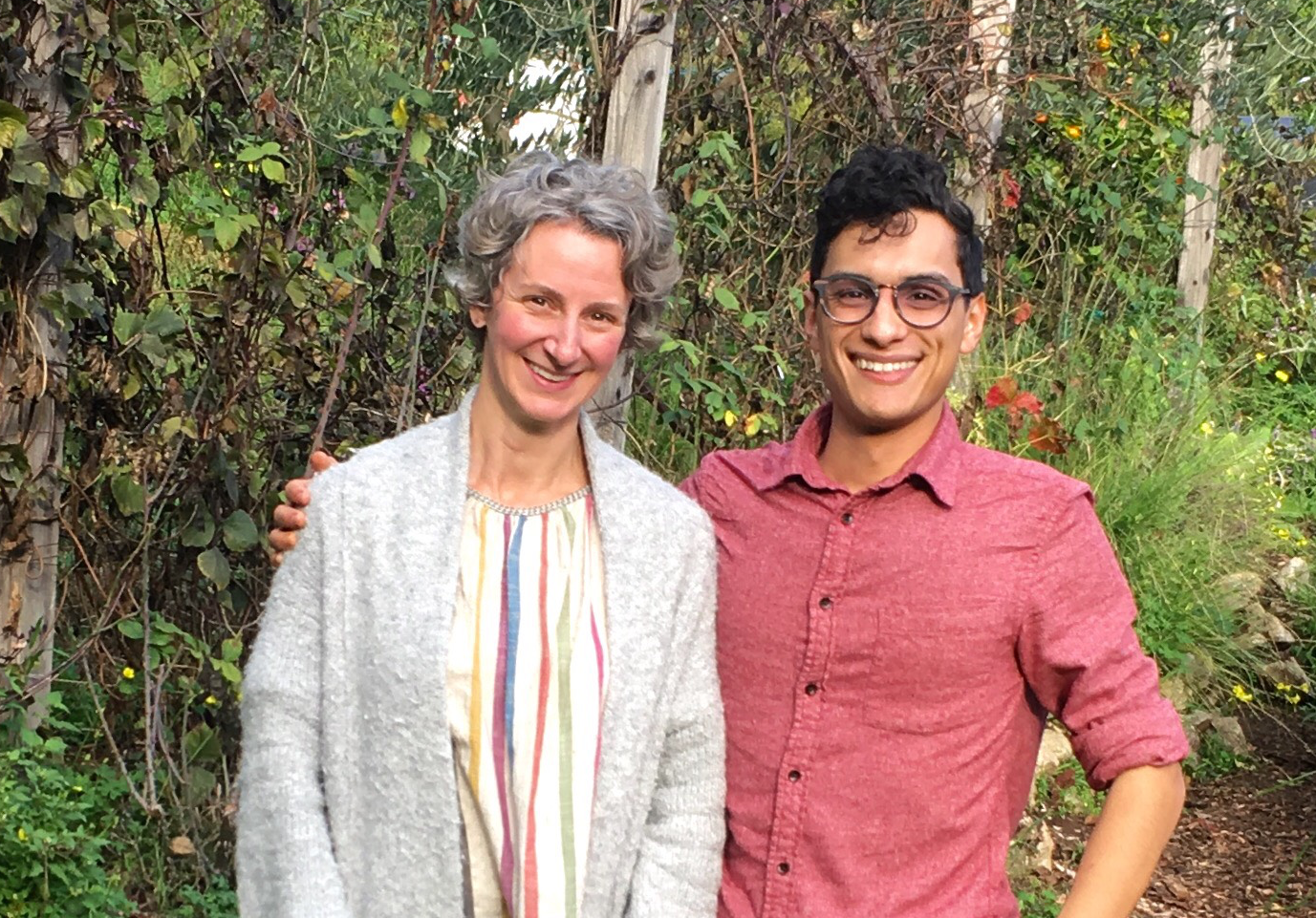 Roman Sul:
Roman Sul:
Roman is studying Politics & Computer Science. His interests lie in anything and everything that can be studied or learned. This has led him to focus on a wide range of topics including the Syrian Civil War, historical Brazilian fiscal policy, the use of artificial intelligence in visual arts, and the ethics of algorithms that aid or determine government policy. He feels that learning more about data science can allow him to continue studying different subjects freely. This mentorship will grant him the opportunity to use and visualize data that can ultimately improve the Core experience for both freshmen and Course Assistants
Dr. Dubreuil is a Merrill faculty member and a lecturer in the Writing Program. She received her undergraduate and masters degrees in English Literature from Stanford University and her Ph.D. in English Language and Literature from the University of Virginia. Her research and teaching interests span 19th and 20th century British and American literature, Writing, Rhetoric, and First Year Programs. She came to UCSC from Colorado College, where she was the Director of the First Year Experience Program and taught literature and humanities courses with a focus on critical analysis and the transition to college. At CC, she oversaw and helped to create curriculum and training for peer mentorship across disciplines. In fall of 2017, she piloted Merrill College’s Course Assistant Seminar to support the theory and practice of peer mentoring in the Merrill Core.
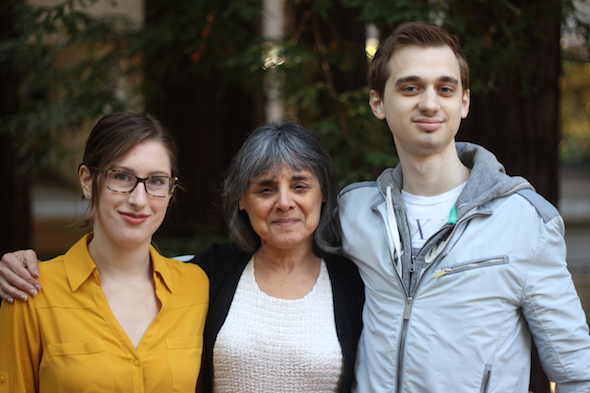 Steve Smarduch:
Steve Smarduch:
My name is Steve Smarduch and I was originally raised in Chicago until the age of 15 when I moved to Germany. I lived there for two years and integrated into their society and fluently learned German along the way. As a result, I can speak Russian and Polish (from parents) and German and Italian (learned while in Germany) besides English. Additionally, I have two high school diplomas, one from Germany and one from the US as I moved back when I was 17 and finished the US high school in California. My major is biochemistry and molecular biology and I am a second-generation student of immigrants. When first entering university, I obtained a passion to achieve a PhD in biochemistry and to eventually enter the pharmaceutical or biotech industry and commit to research related to auto-immune disorders to further create the possibility of personalized medicine for people who currently lack the accessibility to treatment for rare and hard-to-cure diseases.
Alicia Freedman:
No Bio
Dr. Martha Zúñiga:
Dr. Zuniga is Professor in the Department of Molecular, Cell, and Developmental Biology. She is a member of the Health Sciences Advisory Committee of the MCD Department. She also is a long-standing faculty mentor for the UCSC STEM Diversity Programs and a life-time member and former board member of the Society for the Advancement of Chicanos and Native Americans in Science (SACNAS). She teaches the Health Sciences Internship course and Virology and for twenty five years she taught the Immunology courses. In 2014 she was awarded the Ron Ruby Award for Teaching Excellence in the Physical and Biological Sciences for her creative teaching of Immunology and for inspiring a passion for Immunology in her students. A recipient of the Presidential Young Investigator Award (1990), she does research on the development and maintenance of immunological tolerance.
Project Summary:
A properly functioning immune system enables an individual to mount effective responses against pathogens and tumor cells while also not attacking self-tissues. In normal individuals this balance is achieved by two processes. In the first, the developing T and B cells of the immune system undergo specialized genetic rearrangements to generate antigen receptors. Each T or B cell expresses a unique antigen receptor; collectively all of these cells can respond to any foreign molecule that enters the body. But the genetic rearrangements occur at random, so it is possible that some of the antigen receptors can bind to self-molecules. These T and B cells whose antigen receptors can bind to self-molecules must be silenced or eliminated to prevent autoimmune disease. Screening and removal of auto-reactive T and B cells begins during their development.
Using these tools we are examining how T cells with auto-reactive antigen receptors are dealt with during their development and maturation in the thymus. The FACS experiments that we have done in the lab have generated an enormous amount of data that must be carefully analyzed so that we may draw conclusions from our experiments. Alicia and Steve will use a powerful software package called FlowJo to analyze the data. They will produce a quantitative and qualitative analysis of the development of T cells in different lines of mice generated in our lab. The ultimate goal of these studies is to elucidate the stages at which auto-reactive T cells are either deleted or silenced during their development in the thymus.
--------------------------------------------------
Victoria Jones:
Victoria Jones is a fourth year Literature major with minors in Film and Digital Media and Italian Studies. Her literary and cinematic interests come from the two worlds of acting in a Shakespeare festival through high school and reading and watching popular Science Fiction and Fantasy. Broadly, her interests grapple with media’s impact on and relationship with the culture they are produced in. This year she is writing a senior thesis on the literary and cinematic representation of female automatons and gendered artificial intelligence, from 1800 to the present. In her studies, she has emphasized the analysis of gendered representation and theory across different historical periods and representational forms. She hopes to extend and deepen these interests through graduate research in the field of Comparative Literature after she graduates.
Jennifer Horne:
Jennifer Horne is a scholar of American cinema with research interests in the history of film circulation and exhibition, the representation of women’s activism on screen, and the uses of film in international diplomacy during the Cold War. She writes about media citizenship, the history of institutional uses of film/video, media archaeologies, film exhibition histories, areas of film preservation and archiving that shape our understanding of film culture, and all aspects of these areas which touch gender and feminist history. Her publications include articles on nonfiction film and documentary film in The Moving Image and The Historical Journal of Film, Radio, and Television, and essays about the circulation of nonfiction media in Useful Cinema (Duke University Press, 2011), and Beyond the Screen: Institutions, Networks and Publics of Early Cinema (John Libbey, 2012) and The Documentary Film Reader (2015). Her expert commentary about early sponsored public health films was included in More Treasures from American Film Archives. Prof. Horne is on the editorial advisory board of Camera Obscura and has represented the Society for Cinema and Media Studies on the National Film Preservation Board since 2005.
Project Summary:
Together Victoria and Jenny will be working on several organizational projects, all of which relate to the advancement of scholarship on silent film and connections between silent film preservationists and academics. There are three central projects that work on separate timelines. The first project will set up a workshop taking place in Toronto in March 2018 at the Society for Cinema and Media Studies. The second project will result in guest speakers for Jenny’s seminar in Film & Digital Media in Spring 2018. The third project will be the facilitation of the spring meeting schedule of the Steering Committee of the Women and Film History International organization. This group of academics planning an international conference to be held in Amsterdam in 2019. The work that they are doing supported by this Merrill Undergraduate Mentorship will benefit members of the UCSC community and many others.
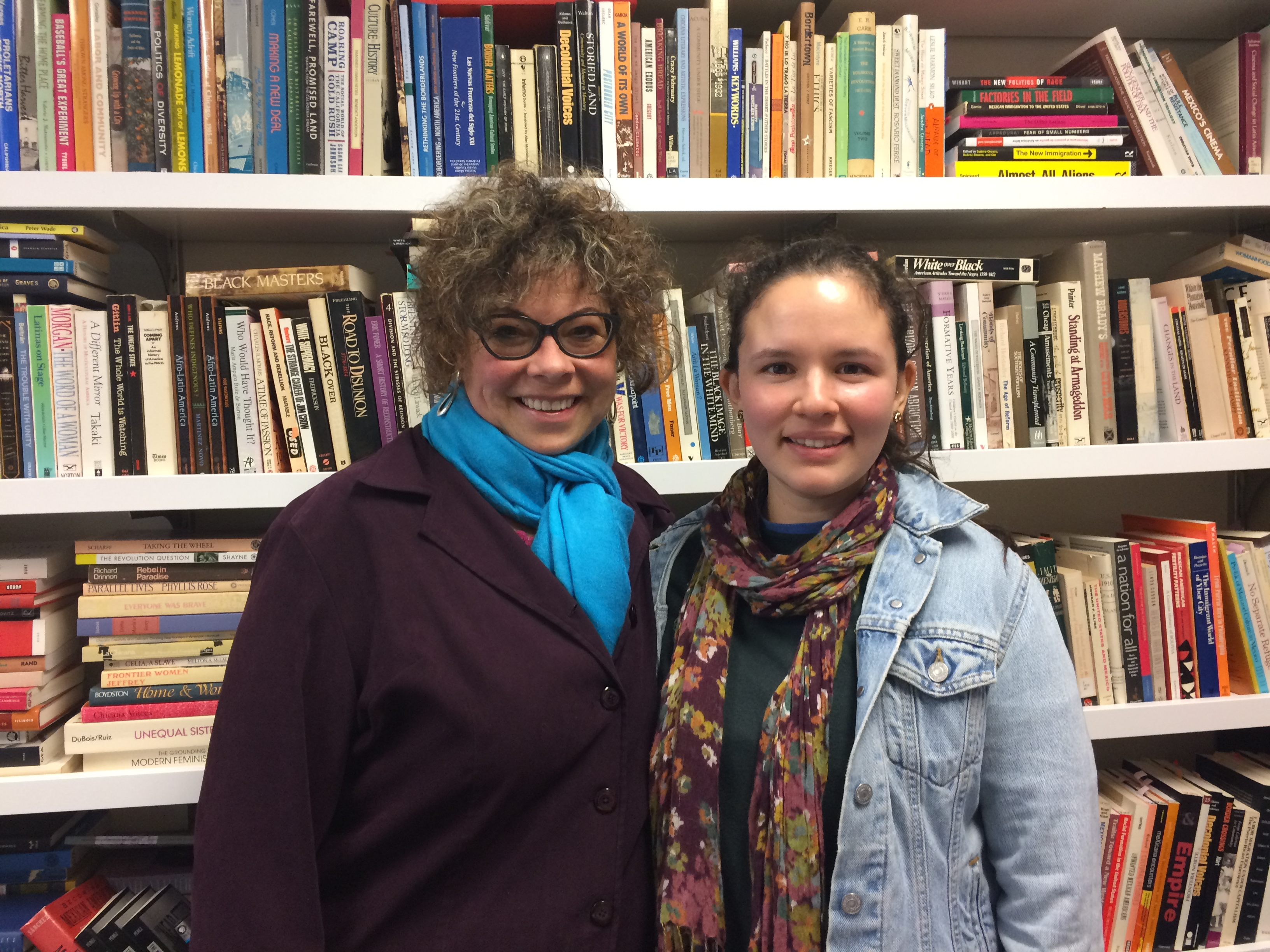 Brenda De La Cruz is a first generation college student from San Francisco, California. Currently, she is a senior majoring in Film & Digital Media and Psychology. She looks forward to gaining more understanding and experience in research methodologies in her minor, Latin American and Latino Studies.
Brenda De La Cruz is a first generation college student from San Francisco, California. Currently, she is a senior majoring in Film & Digital Media and Psychology. She looks forward to gaining more understanding and experience in research methodologies in her minor, Latin American and Latino Studies.
Dr. Gabriela Arredondo is Chair of the Latin American & Latino Studies Department, Associate Professor in LALS, and is also serving as Chair of the Merrill Faculty Fellows. Her teaching and research interests include comparative Latina/o/x histories, gender and racial formations, Comparative migration histories. She is the author of Mexican Chicago: Race, Identity and Nation (2008); co-editor of Chicana Feminisms: A Critical Reader (2003); and currently serves as Distinguished Speaker for the Organization of American Historians.
Project Summary:
As part of a larger book project investigating cross-ethnic and cross-racial cooperation, Brenda will be helping to research legal cases related to civil rights advocacy. Focusing on historical social justice coalitions in these cases, Brenda will learn how to conduct primary historical research, and how to research in case law. She will learn methods for creating research plans, organizing research and how to analyze primary documents. Together we hope to shed light on networks of social justice advocacy in the 1960s United States and their contributions toward progressive civil rights.
--------------------------------------------------
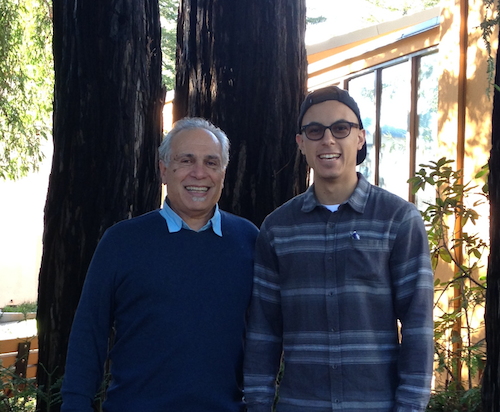 Jose Rangel:
Jose Rangel:
I am a first-generation college student majoring in Latin America and Latino Studies and minoring in mathematics. I was born in Fresno, CA and raised in the small town of Kerman, CA. My interests include working with youth in migrant communities and encouraging students to pursue a path in higher education. My academic interests include learning about the histories and cultures of diverse Latin(x) populations within the United States with focuses on immigration, citizenship, and social history. My long term goals include acquiring a teaching credential Master’s degree in Education.
Fernando Leiva:
Fernando Leiva received a B.A. in Economics at American University and an M.A. and PhD in Economics at the University of Massachusetts at Amherst. Born in Chile, Fernando’s areas of specialization are political economy, social movements, and how global flows redefine the material and symbolic dimensions of power relations. His essays on Latin American development, on the role of the state, and labor movement have appeared in journals such as Latin American Politics and Society, Latin American Perspectives, and New Political Economy, among others. He is the author of Latin American Neostructuralism: The Contradictions of Post-Neoliberal Development(2007), Democracy and Poverty in Chile: The Limits of Electoral Democracy (1994) (with James Petras), and of a co-edited volume Democracy in Chile: The Legacy of September 11, 1973 (2005) which won the MACLAS’ Arthur P. Whitaker Best Book Prize. While examining the politics of participation, ethnodevelopment, Sumak Kawsay, and other emerging ‘post-neoliberal’ approaches, he has moved beyond economics and traditional political economy, to understand the “socio-emotional turn” which increasingly anchors the current strategy of both governments and transnational conglomerates operating in the region in their quest to shape the production of subjectivity in Latin America’s highly unequal societies.
Project Summary: Jose Rangel and Professor Leiva will work on the project "Extractivism and Socio-Environmental Conflicts: New Mechanisms for Building Social Legitimacy." It focuses on the design and implementation new strategies by transnational capital and governments aimed at overcoming community resistances to large scale export-oriented mining project. Focused on Chile, the project explores private, public, and civil-society initiatives promoting "territorial-dialogues" and participatory conflict resolution approaches. José will be studying three different case studies of such "dialogues," gathering information on how they were conceived as well as assessing their outcomes.
Previous partners in the Undergraduate Research Mentorship Program:
Click here to read about the 2016-2017 participants.Click here to read about the 2015-2016 participants.
Click here to read about the 2014-2015 participants.
Click here to read about the 2013-2014 participants.
Click here to read about the 2012-2013 participants.
Click here to read about the 2011-2012 participants.
Click here to read about the 2010-2011 participants.
Click here to read about the 2009-2010 participants.
Click here to read about the 2008-2009 participants.
